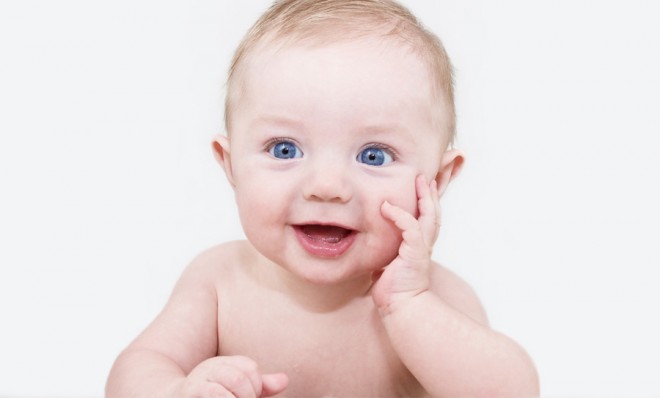How to make a baby with 3 people's DNA
The technique could help eradicate life-threatening genetic diseases in future generations

A free daily email with the biggest news stories of the day – and the best features from TheWeek.com
You are now subscribed
Your newsletter sign-up was successful
The U.K. is slowly winding its way toward approving a controversial in vitro fertilization technique that combines three people's DNA in one embryo — making what some journalists are calling a "three-parent baby."
The technique deals with mitochondria, the tiny "power plants" within a cell that supply most of a cell's chemical energy and control the cell cycle and cell growth. A woman with abnormal mitochondria risks passing on rare, sometimes life-threatening genetic diseases like muscular dystrophy, epilepsy, heart problems, and mental retardation. This new technique could prevent that by essentially replacing her mitochondria.
Here's how the procedure works:
The Week
Escape your echo chamber. Get the facts behind the news, plus analysis from multiple perspectives.

Sign up for The Week's Free Newsletters
From our morning news briefing to a weekly Good News Newsletter, get the best of The Week delivered directly to your inbox.
From our morning news briefing to a weekly Good News Newsletter, get the best of The Week delivered directly to your inbox.
If a woman has faulty mitochondria, scientists remove the mitochondria-less healthy genetic material from her egg or embryo, then transfer it into a donor egg or embryo that has had its DNA removed, but still has its healthy mitochondria in place. This hybrid is then transferred back to the mother's womb with new mitochondria, eradicating the risk of health problems in not just the baby, but all future generations — almost fast-forwarding through what might have taken place through generations of natural selection.
Like all kinds of genetic tampering, mitochondria replacement raises a slew of ethical questions, focusing on everything from the treatment's safety to the rights of the third party mitochondria provider. Here are two items from a long list of questions compiled by the Nuffield Council on Bioethics:
All new techniques pass through research stages before being offered for treatment, but in the early stages of treatment might still be considered experimental. Is it reasonable to use experimental techniques such as these in treatment?
After the use of these techniques, children would inherit nuclear DNA (around 25,000 genes) from their parents, and mtDNA (13 genes) from the donor of the egg. What might the use of these techniques signify for the relationships of the resulting child to the three adults with whom it shares a genetic connection? [Nuffield Council on Bioethics]
There is also a big issue for anti-abortion advocates who view embryos as humans. The charity Christian Medical Fellowship, for example, told USA Today, "We do not consider that the hunt for 'therapies' that might prevent a small number of disabled children (with mitochondrial disease) being born justifies the destruction of hundreds if not thousands of embryonic human lives."
Scientists working on the procedure insist that calling embryos that have undergone mitochondrial replacement "three-parent babies" is a misnomer — the amount of DNA the donor contributes is not significant, they say.
A free daily email with the biggest news stories of the day – and the best features from TheWeek.com
"Scientists have developed groundbreaking new procedures which could stop these diseases being passed on," Britain's chief medical officer, Dr. Sally Davies, said in a statement on Friday. "It's only right that we look to introduce this life-saving treatment as soon as we can."
The U.K. Parliament expects to debate the new plan next year.
Carmel Lobello is the business editor at TheWeek.com. Previously, she was an editor at DeathandTaxesMag.com.
-
 The ‘ravenous’ demand for Cornish minerals
The ‘ravenous’ demand for Cornish mineralsUnder the Radar Growing need for critical minerals to power tech has intensified ‘appetite’ for lithium, which could be a ‘huge boon’ for local economy
-
 Why are election experts taking Trump’s midterm threats seriously?
Why are election experts taking Trump’s midterm threats seriously?IN THE SPOTLIGHT As the president muses about polling place deployments and a centralized electoral system aimed at one-party control, lawmakers are taking this administration at its word
-
 ‘Restaurateurs have become millionaires’
‘Restaurateurs have become millionaires’Instant Opinion Opinion, comment and editorials of the day